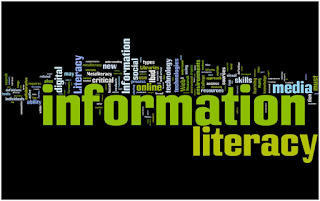Critical Literacy or Reading is a Very Political Act
Reading is a very political act. I use political broadly. Derived from the ancient Greek term polis, political refers to city-states and by extension to the people in those states. Historically, the ability to decode and interpret signs and symbols was an important indicator of full citizenship status. To deny people access to reading was tantamount to denying them full citizenship.
As I discussed in my previous blog entry, this denial was a very important method to keep African-Americans in a non-citizen status in some states of the antebellum south.
Paulo Freire and Donaldo Macedo (1987) understood and complicated the very political act of reading. In Literacy: Reading the Word and the World, the authors argue that reading should not be reduced to mere technical/ survival skills. Reading (literacy) is "viewed as a set of practices that functions to either empower or disempower people" (viii). As such, the authors analyzed literacy "according to whether it serves to reproduce existing social formation or serves as a set of practices of cultural practices that promotes democratic and emancipatory change". Previously, I implied that current reading education practices tend to reproduce the status quo and thus leans towards to disempowering working-class African American boys--who may otherwise become too politically disruptive.
Freire and Macedo's assumptions about reading generated the field of "critical literacy," a term associated with Allan Luke. Luke defined critical literacy as "the use of the technologies of print and other media of communication to analyze, critique, and transform the norms, rule systems and practices governing the social fields of everyday life" (2). Luke noted that the focus of critical literacy is the critique of social and political worlds as presented in media, literature, textbooks and functional texts (5).
Critical literacy involves a continuing interrogation of what seems natural and inevitable in the world, from the often-exploitative nature of capitalism to the ubiquitous preferences for narratives that celebrate and seek to reproduce Whiteness and heteronormativity.
Although I majored in English literature, I still question the use of dead White authors to teach literacy and literature to the exclusion of students' own lived experiences and cultures.
Reading is a very political act. There is nothing more political than reproducing a privileged cultural status and political ideology through the use of certain privileged texts. I will continue to be very critical of the ways we teach and use literacy to enable and disable people of color and other marginalized communities.






Comments
Post a Comment